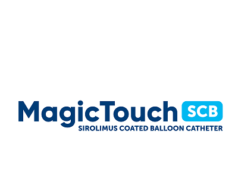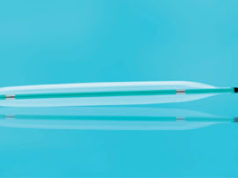
Concept Medical has announced the successful completion of the TRANSFORM 1 RCT. The randomised controlled trial (RCT) aims to understand how the treatment indications and applications of drug-coated balloon (DCB) in coronary artery disease (CAD) can be broadened.
The prospective, randomised, multicentre, RCT focusing on small vessels, de-novo coronary lesion treatment enrolled the final patient on 31 August at Heartlands Hospital, Birmingham, UK, completed by Sandeep Basavarajaiah and team.
The first of its kind angiographic RCT enrolled 114 patients with a head-to-head comparison between paclitaxel and sirolimus in small vessels (≤2.75 mm), de-novo coronary artery lesions. Patients were randomised in a 1:1 fashion between Magic Touch (Concept Medical) or SeQuent Please Neo (B Braun). The RCT leadership comprises of co-chairs Patrick Serruys (National University of Ireland, Galway, Ireland) and Bernardo Cortese (San Carlo Clinic Milano, Milan, Italy) and the principal investigator Antonio Colombo (Centro Cuore Columbus, Milan, Italy).
“Forty-five years after the first balloon angioplasty, 36 years after the introduction of stenting and 22 years after the first implantation of bioresorbable scaffolds, the dream of ‘leaving’ nothing behind is still very much alive in the mind of the interventional cardiologists if sub-acute occlusion and late restenosis rates are competitive with permanently implanted prosthesis,” Serruys was quoted as saying in a press release issued by Concept Medical.
“This trial, testing DCB in small vessels has (re)discovered the basic mechanism of balloon angioplasty, beautifully documented by OCT prior to the application of the drug coating and will provide a wealth of mechanistic factors determining the angiographic and clinical outcomes of this treatment. OCT with machine-learning will tell us what the impact is of tissue composition and the prognostic significance of the ‘therapeutic dissection’, a ubiquitous phenomenon after balloon angioplasty. I am more than ever excited and anxious to see the angiographic results.”
TRANSFORM 1 RCT is exploring the “uncharted field” of small vessels, Concept Medical added in its press release. The primary objective of the study is to assess angiographic outcomes in respect to the net gain (mm) at six months. Optical coherence tomography (OCT) was conducted at baseline along with quantitative coronary angiography (QCA) assessment which was performed pre and post-procedure and at six months follow-up.
“Small coronary vessels PCI should not be considered futile, in fact prognostically they are important and associated with short and mid-term adverse events, and drug-eluting stent is associated with double risk of TLF in this setting, as compared to larger vessels. For the first time we will be able to see if sirolimus, with its safety and wider therapeutic window, can match paclitaxel as regards to its recognised lumen enlargement effects” Cortese, who is also the chairman of the DCB prospective registry EASTBOURNE, adds in the press release.
Sandeep Basavarajaiah, UK who has a wide experience with the Magic Touch device, said: “It is a great initiative by Concept Medical to sponsor such a detailed RCT, which will have significant impact on the future of angioplasty especially when treating small vessel de novo lesions. We are now slowly moving away from long layer of stenting and evidence from such trials will further strengthen the belief among cardiologist that ‘less metal is better’. It is a bold step to embark on comparing MagicTouch SCB with the widely used Paclitaxel coated balloon (SeQuent Please Neo) currently available. Our unit (Heartlands Hospital) is one of the largest recruiting sites for the trial and we have thoroughly enjoyed the experience and eagerly looking forward to the results and taking part in future trials with MagicTouch.”
“The Transform 1 will give the needed angiographic follow-up about the performance of Sirolimus-eluting balloons versus Paclitaxel eluting balloons evaluated in a scientific way. This type of information is seminal contribution in the field of interventional cardiology,” said Colombo.










